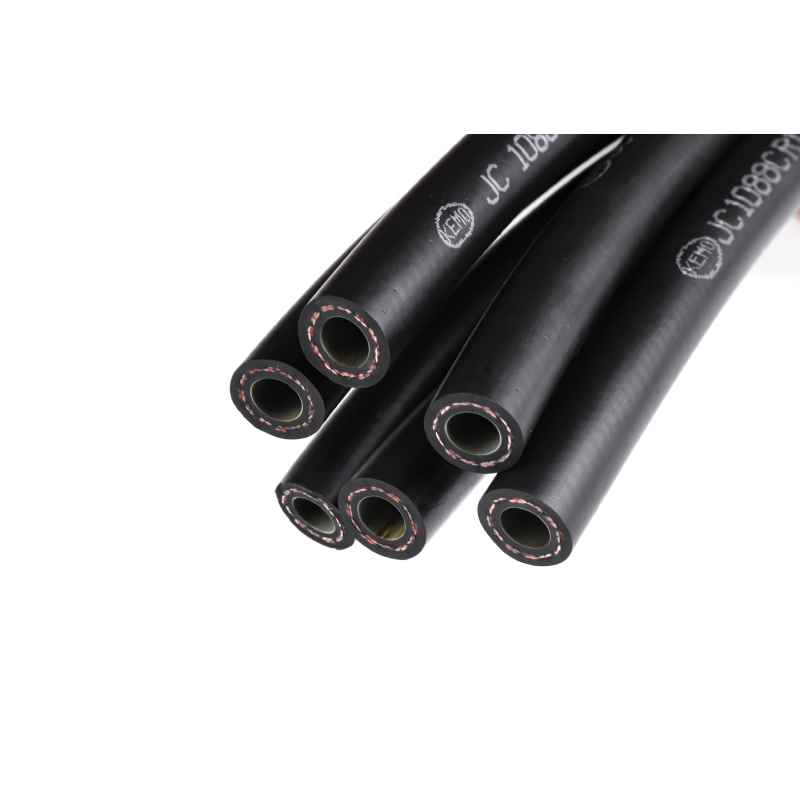Bulk Fuel Hose Specifications and Applications for Efficient Fuel Transfer Systems
Oct . 17, 2024 04:21 Back to list
Bulk Fuel Hose Specifications and Applications for Efficient Fuel Transfer Systems
Understanding Bulk Fuel Hose Essential Aspects You Need to Know
In the world of industrial and commercial fueling operations, the bulk fuel hose plays a crucial role. It serves as the lifeline for transporting various types of fuels, including gasoline, diesel, and aviation fuel. This article aims to explore the significance of bulk fuel hoses, their construction, applications, and safety considerations.
What is Bulk Fuel Hose?
Bulk fuel hoses are robust, flexible tubes designed to transfer fuel from storage tanks to vehicles, machinery, or other tanks. Unlike regular hoses, bulk fuel hoses are engineered to withstand the harsh conditions associated with fueling operations, such as high pressures, temperature fluctuations, and exposure to chemical substances. They are commonly used in fueling stations, warehouses, and industrial environments, ensuring efficient and safe fuel transfer.
Construction and Materials
The construction of a bulk fuel hose is critical to its performance. Typically, these hoses are made from a combination of materials, including rubber, thermoplastics, and reinforced fibers. The inner lining is often designed to resist the corrosive effects of various fuels, while the outer layer provides durability and protection against external factors such as abrasion and UV radiation.
Reinforcement is a key feature of bulk fuel hoses
. Many hoses are constructed with layers of braided or spiraled fibers, adding to their strength and flexibility. The reinforcement also helps maintain the hose’s shape under pressure, preventing kinking or collapsing during use.Types of Bulk Fuel Hoses
There are several types of bulk fuel hoses available, each designed for specific applications
1. Petroleum Hoses These are primarily used for transporting gasoline, diesel, and other petroleum products. They are designed to resist the chemical breakdown associated with these fuels.
2. Aviation Fuel Hoses Specialized for the aviation industry, these hoses must meet stringent safety standards to handle jet fuel and other aviation-specific fuels without risking contamination.
bulk fuel hose

3. Biofuel Hoses With the rising popularity of biodiesel and other biofuels, hoses designed for biofuel applications are increasingly important. These hoses are made from materials that can withstand the unique chemical properties of biofuels.
Applications
Bulk fuel hoses find applications in a wide range of industries. They are essential in
- Transportation Fueling trucks, buses, and other vehicles. - Aviation Support fuel transfer operations at airports. - Marine Used in fueling boats and ships at docks. - Construction Supply fuel to heavy machinery on job sites.
Safety Considerations
When dealing with bulk fuel hoses, safety is paramount. Here are some key considerations
- Regular Inspections It’s crucial to inspect hoses regularly for signs of wear, damage, or leaks. A compromised hose can lead to fuel spills, which are not only hazardous but can also incur substantial cleanup costs.
- Proper Handling and Storage Hoses should be stored in a manner that prevents kinking or crushing. They should also be kept away from extreme heat sources and chemicals that could degrade their materials.
- Use of Approved Hoses Always ensure that the hoses used comply with industry regulations and standards. Using non-compliant hoses can pose serious safety risks.
Conclusion
Bulk fuel hoses are indispensable components in the fueling infrastructure of various industries. Their design and construction dictate their effectiveness in safely transporting fuels, making them critical for operational efficiency. Understanding the types, applications, and safety concerns associated with bulk fuel hoses can help businesses and operators make informed decisions, ensuring safety and reliability in their fueling operations. As technology advances, we can expect further improvements in hose designs, enhancing their performance and safety features for years to come.
